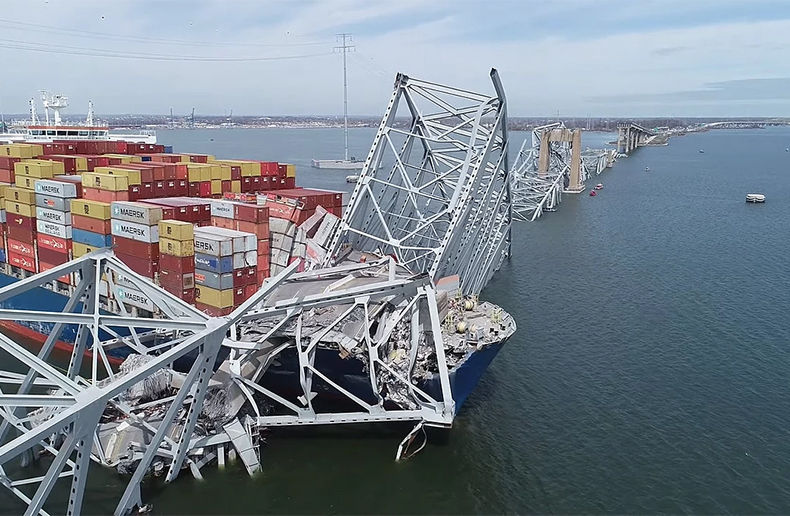This is the worst market Denis Trevost, Vice-President at Sudbury broker Raymond Assurance, has seen in his 28 years of experience. He says insurers “are trying to lose business instead of getting new business.”
He is telling all his clients to expect an average 15% increase in rate, no matter the carrier.
Even with Ontario auto insurance rates 15% higher than in fourth quarter 2001, fourth quarter 2002 saw an average loss ratio of 101.7 and an average combined ratio of over 130. Capacity is down, insurers are refusing new business, and those lucky enough to be insured are at risk of losing their coverage should anything happen.
“I’ve got companies that have stopped writing new business completely,” says Mr. Trevost. He points out Pembridge Insurance stopped writing new business in property insurance across Ontario last November. They slowed down on auto by 50%, he says.
Allianz Canada and ING Insurance have slowed down the process for new business. “You have companies where, in order to send them new business, you need to send them a form and it has got to fit in order to bind coverage. It makes it tough when it takes three weeks to get an answer. The client is in front of you. He wants an answer today, not in three weeks,” exclaims Mr. Trevost.
He says he is seeing 20% to 30% of his market being dumped from the regular insurance companies. Those then have to be placed with the sub-standard market. That includes Echelon General Insurance, Perth Insurance, Kingsway General Insurance, and the Facility Association.
Mr. Trevost states that there are people being dumped for no good reason. “Suppose there was a non-payment. Their driving record is absolutely clear but the fact that there is a non-payment means the regular market doesn’t want them.”
Jim Thomson, Office Manager at the Timmins-based brokerage BMT Insurance, says, “We are at a crisis now where people can come in off the street and I don’t have a market for them. They don’t even qualify for the Facility Association. To get in to the Facility you have to have been declined with a declaration rule by one or more carriers.”
Insurers are using what he calls “predatory” practices to clean up their book of business. They are culling their databases to identify “people that they want to get rid of. What they do is send a letter 45 days prior to your renewal, and they don’t tell the broker. If you don’t complete that form and send it back to them, you are automatically cancelled,” declares Mr. Thomson.
No insurer has exited, but Mr. Thomson says many are limiting their risk. He points out Allianz in Northern Ontario. “We can’t write any new business with them, and we are not the only brokers.” At ING, “If you walk the street looking for a quote and you haven’t been with one carrier for at least three years, I can’t quote you. They are looking for people who have stable relationships with insurers.” For AXA Insurance Canada, Mr. Thomson says, “Unless you have not had an accident in the last eight years and you haven’t got any traffic convictions, they won’t write you!”
When contacted, AXA did not explicitly state they were closed to new business, but did admit to difficult market conditions. A company representative affirmed that the game plan for the immediate future involved little growth.
Kelly Sinclair, Executive Vice-President for broker Sinclair-Cockburn Financial Group, says Toronto is even worse than Northern Ontario. She says “a lot of brokers have absolutely no marketplace for any business that’s had one loss or two losses in the past six years. Or, even if it’s a totally clean account with absolutely no losses in the past six years, they still have no market for it because whomever they’re dealing with is just not accepting business.”
Sub-standard risk insurer Kingsway is simply discouraging business. Steve Smith, Executive Vice-President and COO at Kingsway, points to cuts in commissions for non-surcharged business, a line which tends to end up costing 30% more than other sub-standard business.
Toronto is its highest loss exposure in Ontario, so Kingsway has focused rate hikes there. “If, for instance, we have taken a 7% rate increase in Ontario, what we have actually done is taken 14% in metro Toronto and nothing in the balance of Ontario.”
Mr. Smith says the Toronto market is a problem for all insurers, standard and otherwise. “It is compounded by many things. One is the driving congestion. Then there is the paralegal and clinic activities that are driving a lot of fraudulent claims.”
“You talk about the Ontario automobile problem, but for all intents and purposes it is really a Toronto automobile problem that is driving the poor results in Ontario,” affirms Mr. Smith.
The situation is critical. Help in the form of incoming regulation Bill 198 is on the way, but that will take a while to implement. Mark Yakabuski, Vice-President for Ontario at the Insurance Bureau of Canada (IBC), says even if reforms are implemented soon it may take anywhere from six to twelve months before anything concrete makes an impact.










